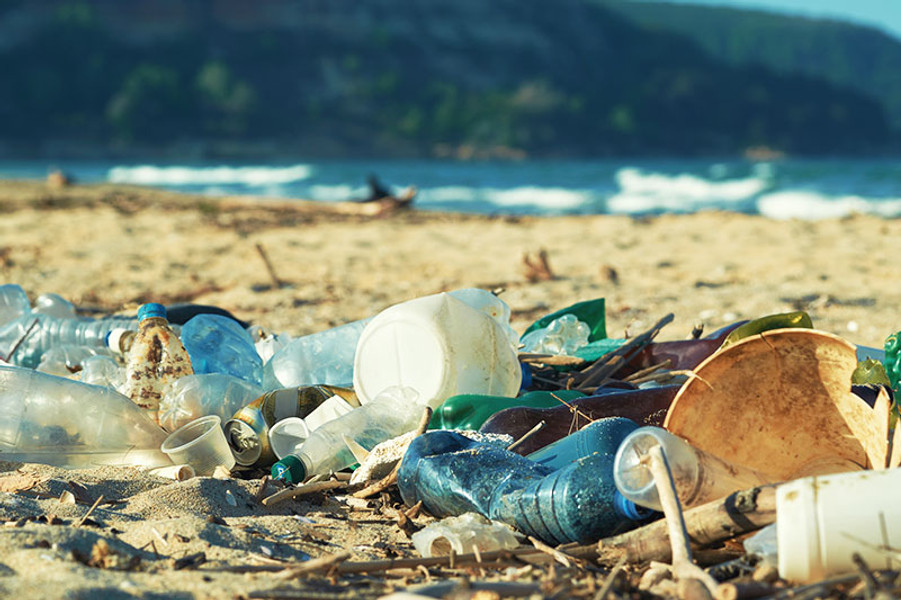Top 10 Countries Responsible for Plastic Pollution and How We Can Make a Difference at Fresh Harvest Market
Posted by Fresh Harvest Market on 5th Sep 2024
At Fresh Harvest Market, we pride ourselves on providing fresh, sustainable, and locally sourced products. As stewards of the earth, we believe it’s crucial to be aware of the environmental impact we have—especially when it comes to plastic pollution. Recently, a report highlighted the top 10 countries contributing to plastic waste in our oceans, and the results are alarming. While addressing this issue is a global responsibility, it starts with small changes in our daily habits, and that’s where Fresh Harvest Market is committed to making a difference.
Here are the top 10 countries leading in plastic pollution:
- 1. The Philippines
The Philippines is currently the world's largest plastic polluter, accounting for about one-third of all plastic waste entering the oceans. This is primarily due to mismanaged waste systems and high consumption of single-use plastics. - 2. India
India faces a growing problem of plastic waste, with much of it coming from packaging and disposable items. Despite efforts to regulate plastics, the country remains one of the top contributors to ocean-bound pollution. - 3. Malaysia
Malaysia has become a dumping ground for plastic waste, much of it imported from wealthier nations. The country struggles with processing the sheer volume of plastic waste effectively. - 4. China
While China has made strides in reducing its plastic waste, it still remains a major contributor. Its massive population and industrial production lead to high plastic consumption, much of which finds its way into waterways. - 5. Indonesia
Indonesia, an archipelago with thousands of islands, is highly vulnerable to plastic pollution. Inadequate waste management and heavy reliance on single-use plastics have pushed the country to the top of this list. - 6. Vietnam
Vietnam is rapidly growing, and with that growth comes an increase in plastic waste. Rivers and waterways are often clogged with discarded plastic, which eventually flows into the oceans. - 7. Thailand
Thailand's booming tourism industry contributes heavily to its plastic waste problem, with single-use plastics dominating the market. Despite recent bans on plastic bags, the country still ranks among the worst polluters. - 8. Egypt
Egypt is the only African country on the list, with the Nile River being one of the main conduits for plastic pollution. Much of the plastic waste from Egypt eventually reaches the Mediterranean Sea. - 9. Nigeria
As one of Africa’s most populous nations, Nigeria faces enormous challenges in managing plastic waste. A lack of infrastructure for proper waste disposal contributes significantly to plastic leakage into the environment. - 10. Brazil
Brazil, with its vast coastlines and sprawling urban centers, also struggles with plastic pollution. Despite some initiatives to curb the use of single-use plastics, the country remains a top polluter.
The Role of Fresh Harvest Market
At Fresh Harvest Market, we believe in taking action to reduce our environmental footprint. By choosing sustainable practices, we can help combat the global plastic problem in small, impactful ways. Here are a few ways we’re committed to reducing plastic waste:
- Plastic-Free Packaging
We’re transitioning to eco-friendly, biodegradable packaging for our products to minimize plastic waste. - Reusable Bags
Encouraging customers to bring their own reusable bags not only reduces plastic waste but also fosters sustainable habits. - Support for Local Producers
By sourcing products locally, we cut down on the excessive packaging used in shipping and transportation, reducing overall waste. - Community Initiatives
Fresh Harvest Market will launch initiatives to raise awareness about plastic pollution and encourage our community to adopt eco-friendly habits.
What You Can Do
- Reduce Single-Use Plastics: Switch to reusable containers, bags, and bottles.
- Recycle Properly: Educate yourself on local recycling guidelines to ensure plastics are correctly disposed of.
- Support Sustainable Brands: By choosing brands committed to reducing plastic waste, you make a positive environmental impact.
Together, we can make a difference. At Fresh Harvest Market, we’re committed to a future with less plastic and more sustainable practices for the health of our planet and future generations. Join us in this movement to create a cleaner, greener world.

